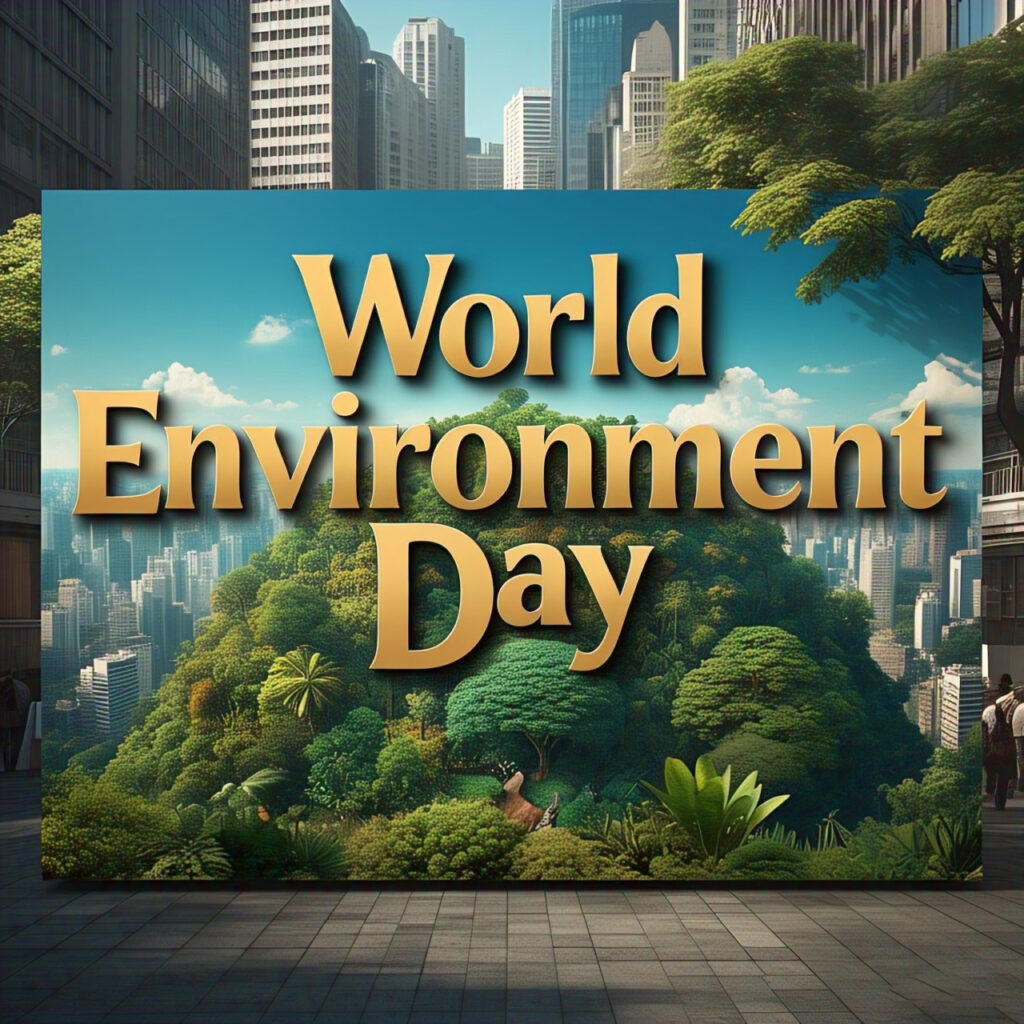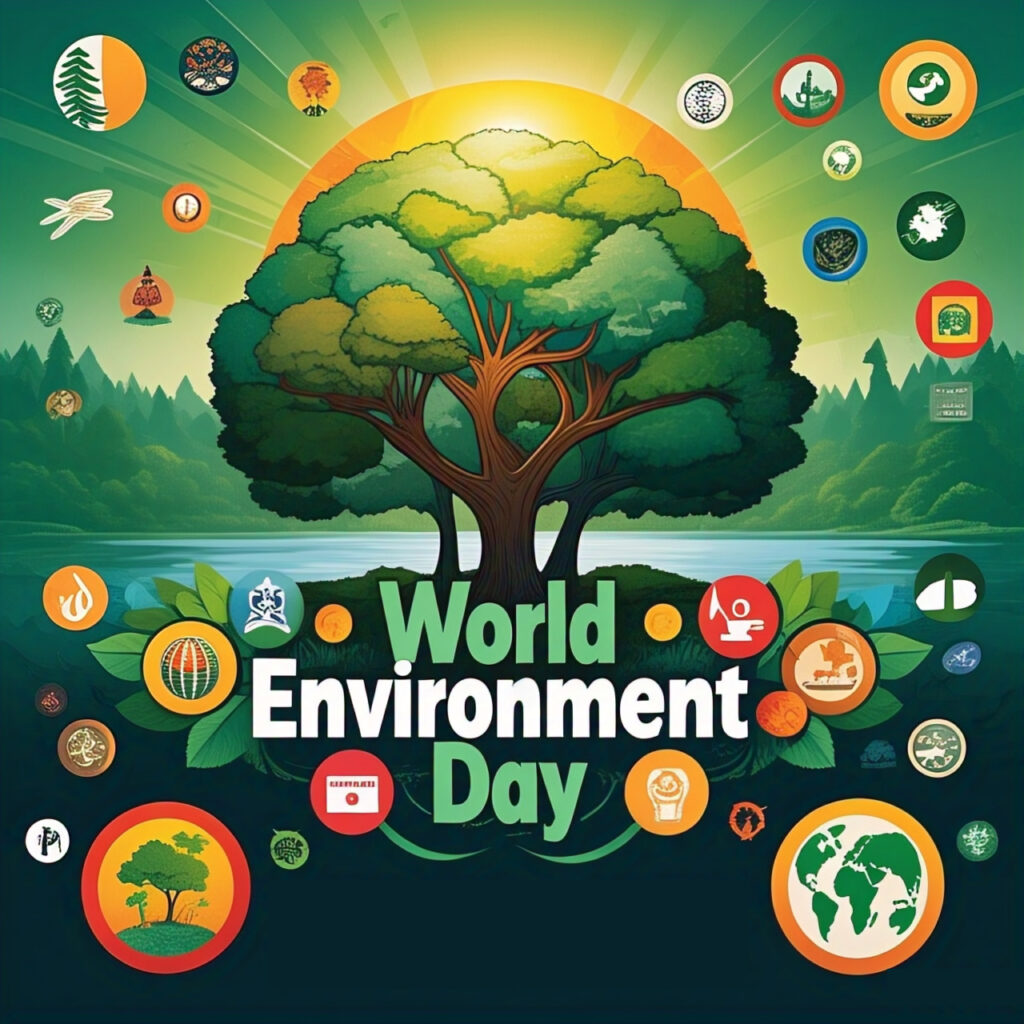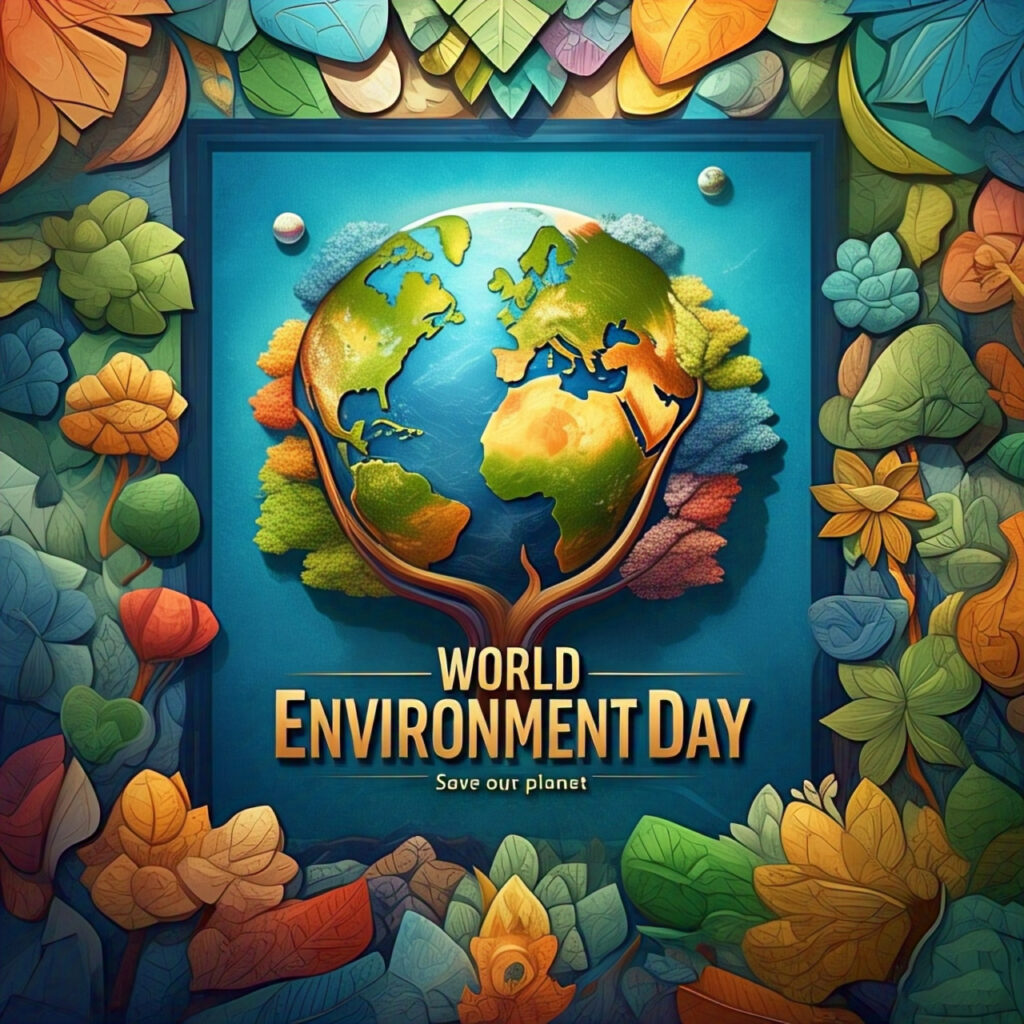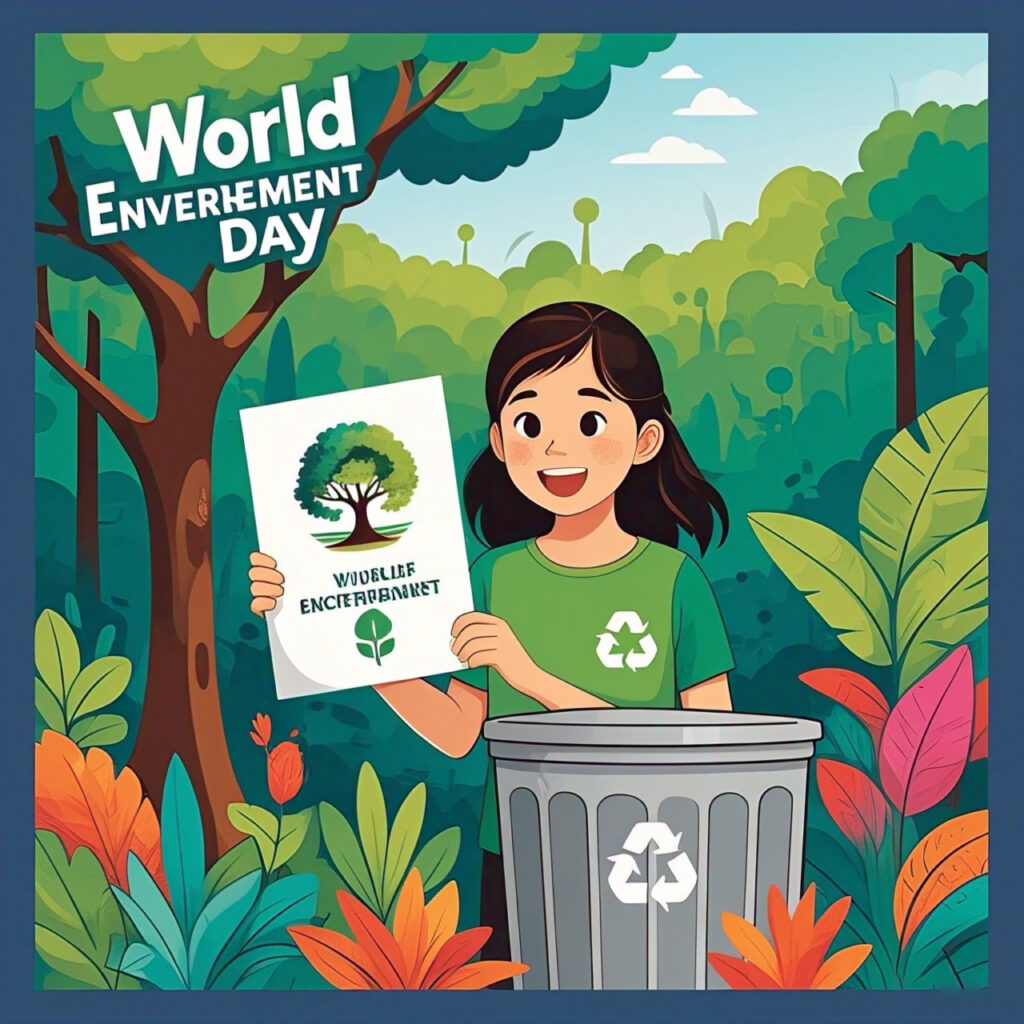Every year on June 5th, millions of people across the globe unite in a common mission — to celebrate, protect, and restore our planet. World Environment Day (WED) is not just a calendar event; it is a global movement, a reminder of our shared responsibility, and a rallying cry for governments, organizations, and individuals to prioritize the health of our planet.
History of World Environment Day
World Environment Day was established in 1972 by the United Nations General Assembly, following the Stockholm Conference on the Human Environment. The first celebration took place in 1974 in Spokane, USA, with the theme “Only One Earth.” Since then, WED has grown to become the largest global platform for environmental public outreach, celebrated in more than 150 countries.
Each year, a host country is selected to lead the celebrations and raise awareness around a specific theme chosen by the United Nations Environment Programme (UNEP). Over the years, the themes have ranged from climate change and biodiversity to plastic pollution and ecosystem restoration.
Theme of 2025: “Our Land. Our Future. We are #GenerationRestoration”
In 2025, World Environment Day is hosted by Saudi Arabia, with the official theme:
“Our Land. Our Future. We are #GenerationRestoration.”
This theme continues the global push toward land restoration, desertification combat, and drought resilience, aligning with the United Nations Decade on Ecosystem Restoration (2021–2030). It reminds us that restoring land not only revitalizes nature but also strengthens food security, creates jobs, and combats climate change.
According to the UN Convention to Combat Desertification (UNCCD), up to 40% of the world’s land is degraded, directly affecting half the global population. The 2025 campaign calls for immediate action, investment, and innovation to reverse this crisis.

Key Global Environmental Issues in 2025
As we step deeper into the decade, environmental challenges have intensified. Here are the top issues facing the world in 2025:
1. Climate Change & Rising Temperatures
The global average temperature is dangerously approaching the 1.5°C limit set by the Paris Agreement. In 2024, extreme heatwaves scorched parts of Asia and Europe, with some cities recording temperatures above 50°C (122°F).
2. Deforestation & Biodiversity Loss
Forests are being cleared at an alarming rate, particularly in the Amazon, Congo Basin, and Southeast Asia. Biodiversity loss has accelerated, with scientists estimating that one million species are at risk of extinction due to habitat destruction and climate stress.
3. Water Scarcity & Drought
From California to Cape Town, severe droughts are affecting agriculture, drinking water supplies, and economic stability. Over 2 billion people now live in countries with high water stress.
4. Pollution (Air, Water, Plastic)
Air pollution is responsible for 7 million deaths annually, according to the WHO. Oceans are choking with plastic waste, with estimates suggesting 11 million metric tons enter the sea each year.
5. Urban Expansion & Land Degradation
Rapid urbanization is leading to soil erosion, reduced agricultural capacity, and the displacement of ecosystems. Land degradation costs the global economy up to $10 trillion annually.
What Governments Are Doing
In response to these escalating issues, many governments and international bodies have stepped up with bold commitments and initiatives.
🌍 UN Initiatives
The UN Decade on Ecosystem Restoration (2021–2030) is pushing countries to restore 1 billion hectares of degraded land.
The Global Biodiversity Framework adopted at COP15 in 2022 set 23 global targets for 2030, including protecting 30% of land and marine areas.
🇸🇦 Saudi Arabia’s Role as 2025 Host
Launching the Saudi Green Initiative, which aims to plant 10 billion trees, reduce carbon emissions by 278 million tons/year, and designate 30% of Saudi land as protected areas.
Investing in sustainable agriculture, desert greening, and renewable energy projects such as NEOM, a smart zero-carbon city.
🌿 Other Notable Government Actions
India: Scaling up urban green infrastructure and renewable energy.
EU: Advancing the European Green Deal with policies for sustainable food, biodiversity, and climate neutrality.
Brazil: New commitments to protect the Amazon rainforest under President Lula’s leadership.

How Individuals Can Take Action
While systemic change is crucial, individual action still matters greatly. Here’s how you can contribute to World Environment Day 2025:
✅ 1. Restore Local Ecosystems
Volunteer in local tree-planting drives or river clean-ups.
Join community gardening or urban farming initiatives.
✅ 2. Support Eco-Conscious Consumption
Choose products from sustainable, ethical brands.
Avoid single-use plastics and opt for reusable items.
✅ 3. Reduce Your Carbon Footprint
Use public transport, walk, or cycle more.
Switch to renewable energy or install solar panels.
Cut down on meat and dairy consumption.
✅ 4. Raise Awareness
Use social media to promote environmental causes using hashtags like #GenerationRestoration, #WorldEnvironmentDay, and #ActForNature.
Organize school or workplace events such as green challenges, art contests, or documentary screenings.
✅ 5. Educate & Advocate
Stay informed through platforms like UNEP, WWF, and Earth.org.
Sign petitions, vote for green policies, and engage in environmental activism.
Sustainable Brands to Follow in 2025
Here are eco-friendly companies leading the way with planet-positive practices:
♻️ 1. Patagonia (USA)
One of the pioneers of sustainable apparel, Patagonia reinvests profits into environmental causes and champions the “Don’t Buy This Jacket” anti-consumerism message.
♻️ 2. Tata Power Solar (India)
A major player in renewable energy solutions, powering homes and businesses across India with clean solar power.
♻️ 3. EcoRight (India)
A fashion and accessories brand using recycled, organic materials and eco-friendly packaging. Popular among Gen Z for its designs and ethics.
♻️ 4. Beyond Meat (USA)
Innovators in plant-based proteins, helping reduce the environmental impact of the global meat industry.
♻️ 5. Pela Case (Canada)
Makers of the world’s first compostable phone cases, proving that style and sustainability can go hand in hand.
Conclusion: A Shared Responsibility
World Environment Day 2025 is a call to action — not just for governments and corporations, but for every individual. Whether it’s planting a tree, changing your daily habits, or inspiring others to join the cause, your role in environmental restoration matters now more than ever.
Let this day serve as a powerful reminder that the future of our planet lies in our hands — and together, we are #GenerationRestoration.



